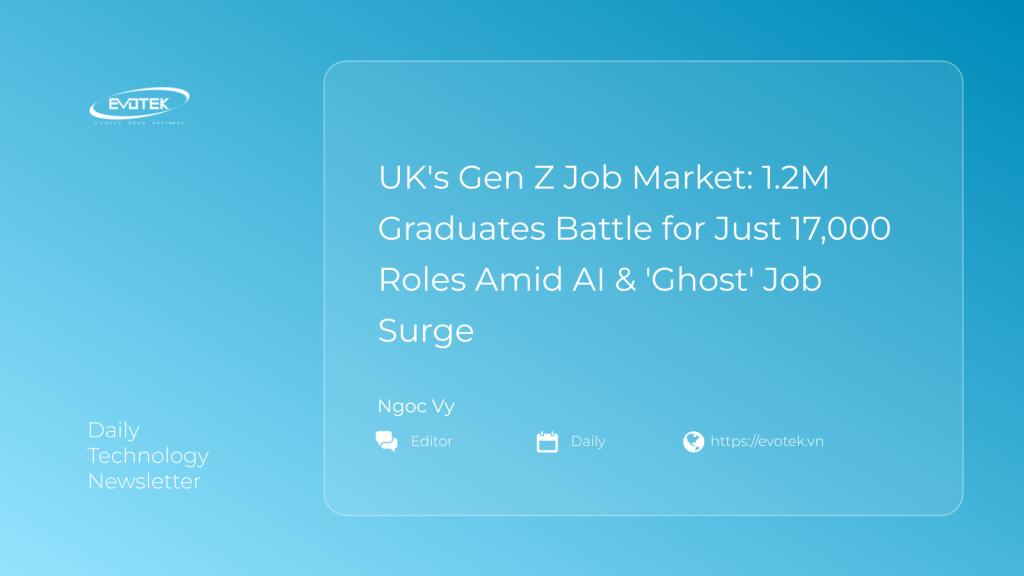The competitive landscape for recent university graduates in the UK has reached unprecedented levels, with a staggering 1.2 million applications vying for a mere 17,000 open graduate positions in the 2023/2024 cycle. This dire statistic, highlighted by Rob Breare, CEO of Malvern College International, underscores a severe “job crisis” for Generation Z, amplified by disruptive forces like artificial intelligence (AI) and the rise of “ghost jobs.”
Gen Z’s Uphill Battle: More Than Just ‘Lazy’ Stereotypes
Often unfairly characterized as disengaged or unambitious, Gen Z graduates are, in reality, demonstrating immense determination to kickstart their careers. However, they are confronting an increasingly hostile labor market. The advent of AI is rapidly automating many traditional entry-level tasks, displacing roles historically filled by new graduates. Compounding this challenge are “ghost jobs” – advertised positions that either don’t exist or have no intention of being filled, serving merely to boost company reputations or gather candidate data. This volatile environment has left even educational leaders sounding the alarm.
Expert Insight Reveals Stark Reality
Speaking at the Fortune Global Forum, Breare articulated the stark imbalance: “There are many graduates now that are coming out of universities, which means that there are more people that are graduating necessarily for the jobs that are there.” He further cited the “rather shocking statistic” from the Institute of Student Employers (ISE), revealing the monumental disparity of 1.2 million applications for just 17,000 UK graduate roles. This figure, Breare noted, “starts to give you the idea of just how competitive that market has become,” signalling a critical turning point for young professionals seeking entry into the workforce.
AI’s Impact on Higher Education and Graduate Prospects
The growing influence of AI on employment isn’t just reshaping industries; it’s also forcing higher education institutions to re-evaluate their curriculum and support systems. As AI agents increasingly handle tasks once designated for new hires, colleges are under pressure to equip graduates with more advanced skills and a deeper understanding of evolving technological landscapes. This evolving dynamic means that today’s graduates bear the brunt of an educational system struggling to adapt swiftly enough to the pace of technological change and market demands.
The Gen Z employment crisis in the UK is a multi-faceted challenge, combining intense competition, technological disruption, and misleading job market practices. Far from a lack of ambition, it highlights a structural issue where the number of qualified graduates significantly outstrips available opportunities, pushing recent graduates into an unprecedented struggle for career entry. Addressing this will require collaborative efforts from educators, employers, and policymakers to bridge the widening gap between talent supply and demand.

 日本語
日本語 한국어
한국어 Tiếng Việt
Tiếng Việt 简体中文
简体中文